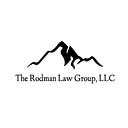HB-1090 Implementation on Schedule

As expected, on August 1, the Colorado Marijuana Enforcement Division (the “MED”) adopted emergency rules (the “August Emergency Rules”) to begin implementing HB19–1090, “Concerning Measures to Allow Greater Investment Flexibility in Marijuana Businesses” (the “Bill”). The Bill permits certain publicly-traded company ownership in marijuana businesses, whereas prior law prohibited such ownership. The Bill and the August Emergency Rules open the door for significant new investment into the Colorado cannabis industry but limit publicly-traded company ownership to those companies organized under US law, and with a principal place of business in the US or certain other countries that authorizes the sale of marijuana.
The Bill completely eliminates the known categories of ownership, such as “Affiliated Interest” and “Associated Key License,” and creates new ownership and investment categories such as “Controlling Beneficial Owner,” “Passive Beneficial Owner,” “Indirect Financial Interest Owner,” “Qualified Institutional Investor,” and “Qualified Private Fund.”
The Bill creates a long-awaited opportunity for publicly traded entities, private equity funds, and venture capital funds to obtain an ownership interest in licensed cannabis businesses in Colorado. However, while licensees can now negotiate and enter into contracts with publicly traded companies, private equity funds, and venture capital funds, the rules do not allow such contracts to close yet. The MED has announced that it will begin accepting applications for publicly traded company, private equity fund, and venture capital fund ownership on or about November 1, 2019. Licensees, publicly traded companies, and funds seeking to capitalize on the Bill and the August Emergency Rules should expect lengthy delays after submitting applications for ownership.
The Bill adds complexities for existing licensees who submit renewal applications or acquire new licenses. For example, business license renewal applications will require new disclosures that the MED has not previously required, and “Associated Key” holders will receive a new “Owner Badge” at their next renewal. The Bill also alters the criminal restrictions on who can own businesses.
The August Emergency Rules became effective August 1, 2019, and will expire on November 29, 2019. The MED is working to adopt permanent rules, which will be effective on January 1, 2020. The Rodman Law Group represents multiple businesses and public companies working to operating in compliance with this new regulatory scheme. We are tracking new developments as they arise, and are happy to discuss and advise you on the myriad changes to the rules as a result of the Bill. Please give us a call if you are interested in learning more.
The information in this blog post (the “Blog” or “Post”) is provided as news and/or commentary for general informational purposes only. The information herein does not, and shall never, constitute legal advice and therefore cannot be relied upon as a legal opinion. Nothing in this Blog constitutes attorney communication and is not privileged information. Nothing in the Post or on this website creates any kind of attorney-client relationship or privilege of any kind.
Originally published at https://therodmanlawgroup.com on August 13, 2019.
